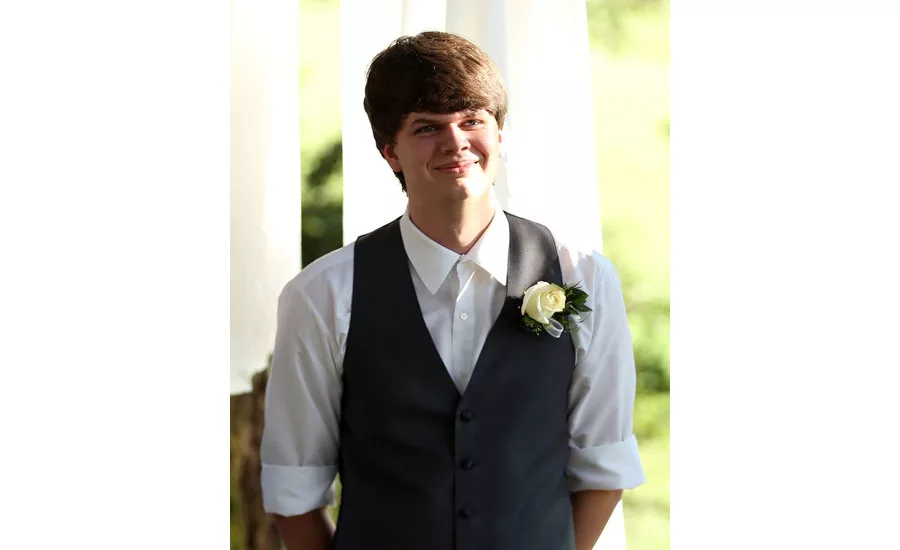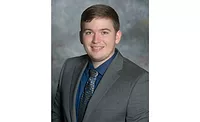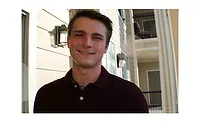Student of the Month: Kaden Stevens

Name: Kaden Stevens
Degree Being Sought: Polymer Science
Undergrad Degree & Institution: University of Southern Mississippi Department of Polymer Science and Engineering
Research Group: McCormick Research Group
Area of Study: Amphiphilic Copolymers and Polyelectrolytes via RAFT Polymerization
Hometown: Sumrall, MS
Give a brief synopsis of research/work being done.
My thesis project involves the synthesis of sulfonamide containing statistical copolymers to create pH-responsive polysoaps for hydrocarbon sequestration by using a pair of sulfonamide-based monomers. By forming amphiphilic copolymers, we hope to form “polysoaps” that create unimeric micelles as a function of pH without requiring a critical micelle concentration (CMC). In these copolymer systems, we aim to form polysoaps with three distinct phase behaviors based on pH that will allow us to sequester and remove hydrocarbon via micelles, separate the polymer from the aqueous solution and then extract the hydrocarbon from the polymer. These systems have the exciting possibility of being reused and being used for multiple cycles of purification.
From your current perspective, what do you see as an ideal fit for your skills, goals and career moving forward?
In my work at USM, I have been fortunate enough to develop a wide variety of synthetic skills. I would enjoy a position that required sophisticated synthetic techniques to provide useful properties to materials. For this reason, I have maintained an interest in working with stimuli-responsive polymers, and have been fortunate enough to work with this class of materials both during my time in Lott Group (2015-2017) and McCormick Group (2017-2018). I would enjoy being involved in the research and development of stimuli-responsive materials.
Please tell us an interesting (personal) fact about yourself.
I have played drums for over a decade, and have played and recorded music ranging from gospel and country to jazz and rock.
What USM-related scholarships did you receive?
University Presidential Scholarship
Waterborne Scholarship
Awards won
Eastman Waterborne Student Poster Session 2017 1st Prize
USM Undergraduate Research Symposium Material Design 3rd Place
Main USM extracurricular activity – why is this important to you?
President of Polymer Science Association 2016-2017.
I have enjoyed my time as a member of PSA because of the benefits I feel we provide members and prospective students. As a student-run organization, we can give prospective students a perspective on the program that is crucial to their understanding of the department. While president of PSA, I have been fortunate enough to be involved in the recruitment of high school students through events such as Black and Gold Day and local college fairs. These opportunities to reach out to talented students and offer them a challenging and rewarding future are incredibly valuable to me.
What has been your most profound turning point while at USM?
As a freshman, I spent my spring semester in Strasbourg, France. I was undeclared and taking general classes until I decided what I wanted to do. While in France, I attended the European Coatings Show to help represent the Waterborne Symposium. At the European Coatings Show, I was overwhelmed by the possibilities a polymer science degree provided. I began researching the degree and when I got home a month later, I joined the program and signed up for summer classes. I haven’t looked back since.
What are your plans for next year and beyond?
I plan to attend graduate school and obtain a PhD. After obtaining my degree, I intend to work in an industrial research position. I am interested in stimuli-responsive polymers, and have been fortunate enough to work with these materials in both Lott Research Group and McCormick Research Group, so I feel this would be a good fit for my skill set.
While at USM, what other accomplishments/activities are you most proud of?
I have been married and had a son since starting at USM. I will never be prouder of anything than I am of my family.
What was one of your greatest challenges attending USM?
My education from a rural Mississippi high school left me with a weak math and science background when I decided to enter polymer science. I had to take a heavy course load to catch up, taking summer courses and 19-hour semesters to be on track for my junior year. I think this accelerated pace helped me to complete the junior level courses, and prepared me for the expectations of upper level polymer courses.
Looking for a reprint of this article?
From high-res PDFs to custom plaques, order your copy today!







